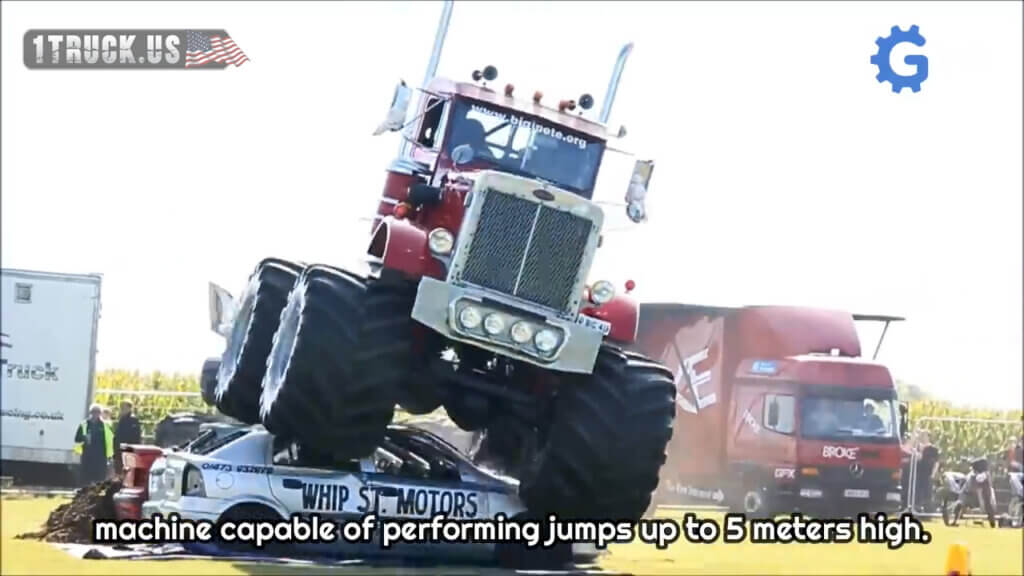High Positions: Ken Miller, President of StateWay Logistcs
In our interview series ‘High Positions’ we ask leaders who shape the business to give us their honest, unfiltered opinion about the state of the industry.
This time, Manuel Lutz, Co-Founder of 1Truck America, talked to Ken Miller, President of StateWay Logistcs, about the challenges of today’s market and what the future will look like.
Manuel Lutz:
You’ve been part of the transport industry for almost 25 years; how has it changed since you started?
Ken Miller:
Manuel Lutz:
Where do you see the freight market today and what are its biggest challenges?
Ken Miller:
According to estimates by the American Trucking Associations, the dearth of drivers, which stood at approximately 78,000 in 2022, is expected to increase two fold by 2031. Furthermore, the industry will need to recruit approximately 1.2 million drivers to supplant retirees. However, the cost of training, which can amount to $7,000, is one of the impediments to hiring new drivers.
In search of viable solutions to the shortage, the agricultural industry has been severely impacted, and as such, agricultural businesses and organizations are striving to attract more drivers to the trucking sector. To this end, the Illinois Farm Bureau has commenced offering a scholarship for commercial driver’s license training, typically conducted at community colleges, in anticipation of the regulation change.
The application for the scholarship mandates that an endorsement from a person in the agricultural industry be provided to demonstrate that the applicant intends to utilize the license to benefit agriculture. As per a recent report by the American Trucking Associations, lifestyle is among the numerous factors contributing to the shortage of drivers.
Several groups are pushing for policy changes, such as the reduction of the federal age limit that restricts truckers under the age of 21 from driving across state lines, as well as advocating for infrastructure that would minimize traffic delays.
Women In Trucking has reported that in 2022, women constituted almost 14% of professional drivers, a significant increase from just 7.9% in 2018. This segment offers a potential solution to alleviate the shortage. However, the job must be made more appealing to them. It is imperative to understand that there is no single solution to address this issue, and several solutions must be implemented simultaneously to tackle the shortage. The sooner we commence implementing these solutions, the more advantageous it will be to our supply chain.
Manuel Lutz:
What is your prediction for the next two quarters and where will the market go from there?
Ken Miller:
The North American freight market is poised for a strong recovery in the second half of 2023 after a lean first half.
Since the start of this year, the freight industry in North America has been struggling with weak demand and volume. In April 2023, the region saw a decline in total goods spending for the fifth consecutive month, as per expenditure data. The rise in inflation and decrease in wages resulted in lower retail sales, causing destocking of inventory. This destocking of inventory has become the primary factor behind the drop in freight volumes. The recent increase in import volumes can be attributed to the positive impact of improved disposable personal income and personal consumption expenditure.
The economic performance of the current and previous months has been favorable, and if this trend continues, we may see a reversal in the North American freight market. While April showed some promise for improvement, the ongoing global economic downturn and geopolitical tensions will make this recovery challenging.
However, the second half of the year could bring a surge in the North American freight market, as stronger economic conditions could create a more favorable environment. After a prolonged period of stagnation, we may be approaching a turning point where a new phase of the market can begin.
Manuel Lutz:
Where do you see the industry heading in the next couple of years?
Ken Miller:
Ken Miller – President of StateWay Logistcs
Ken Miller is a highly accomplished professional with a wealth of experience in the logistics industry. He currently holds the position of President & Managing Director at StateWay Logistics, a comprehensive logistics firm that covers all transportation modes. In addition, he also leads Dray Solutions, a software solutions company that specializes in providing advanced technology to third-party logistics companies and carriers.
Prior to his role at StateWay Logistics, Ken Miller served as an Executive Board Member of the Illinois Trucking Association and the Executive Advisory Council for Iowa State Supply Chain & Information Systems. He also held the position of Vice President at J.B. Hunt Transport Services, Inc., where he made significant contributions to the company’s success.
Ken Miller’s professional journey began with his service as a United States Army paratrooper before transitioning into the logistics industry. His educational background includes a bachelor’s degree in economics from Syracuse University and a certificate in transportation business management from the University of Arkansas.
With his extensive industry knowledge, leadership skills, and dedication to innovation, Ken Miller continues to drive the growth and success of StateWay Logistics and Dray Solutions. His expertise and experience make him a valuable asset in the dynamic and evolving field of logistics.

1Truck America, August 2nd 2023



